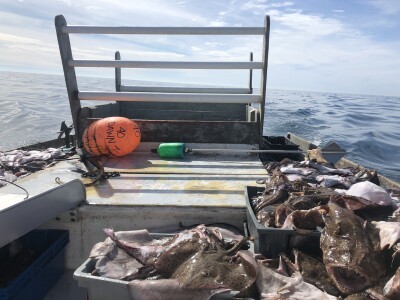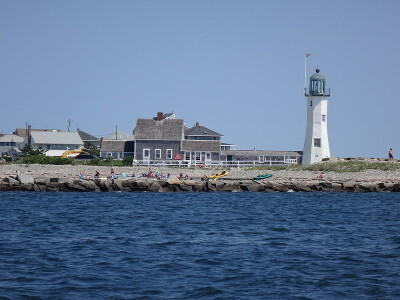When it comes to seafood in Lake Charles, diners have reason to feel more confident than many other markets being tested in the 8-state study being commissioned by the Southern Shrimp Alliance and the Louisiana Shrimp Task Force.
New genetic testing shows that 19 out of 24 shrimp dishes sampled at local restaurants were either made with verified wild-caught Gulf shrimp or were correctly labeled as imports—a high authenticity rate credited to Louisiana’s strong Country of Origin labeling laws and active enforcement. That means Lake Charles has a 21 percent inauthenticity rate compared to states without labeling laws and enforcement, where the average inauthenticity rate is 78 percent.
The testing was conducted by SEAD Consulting using its patented RIGHTTest™ as part of a regional effort to protect consumers and support the domestic shrimp industry.
In addition, an interesting correlation has surfaced regarding pricing. The price of shrimp dishes, when marketed as Gulf shrimp throughout the 5 Louisiana restaurant markets tested to date, commands approximately $4 more per plate than shrimp dishes marked as imported shrimp. In addition, in Lake Charles specifically, Po Boys marketed as containing Gulf Shrimp were selling at almost double the price of Po Boys marked as containing imported shrimp. The one restaurant found to be illegally marketing and selling Po Boys as Gulf but selling imports, commanded a much higher price than the ones correctly labeling imports.
The price consumers are willing to pay for local, authentic, wild-caught Gulf shrimp demonstrates why untrustworthy restaurants will falsely represent what they are selling. Of note, the study has also found that explicitly fraudulent dishes are priced the same or higher than the actual authentic U.S. wild-caught shrimp dishes in Louisiana, which further punctuates how mislabeling is a profit-making tactic for dishonest restaurateurs.
“This price data clearly demonstrates that consumers place a premium on U.S. wild-caught shrimp. Louisiana’s seafood labeling laws, when paired with robust enforcement, allow consumers to make informed choices,” said John Williams, Executive Director of the Southern Shrimp Alliance. “Strong enforcement ensures consumers receive authentic Gulf shrimp, rewards restaurants that source high-quality local seafood, and enables our shrimpers to compete against lower value, often unethically produced imports.”
The following 19 Lake Charles restaurants were confirmed to be serving wild-caught Gulf shrimp or correctly labeling imports on the menu:
- JT's Seafood – 2908 Lake St
- Mazen's – 217 W College St
- Salt Revival Oyster Co – 3420 Ryan St
- Darrell's – 119 W College St
- Golden Hooks Seafood & Chicken – 3505 Ryan St
- The Cajun Wharf – 3500 Ryan St
- Steamboat Bill's – 1004 N Lakeshore Dr
- ESPN BET Sportsbook – 777 Ave L'Auberge
- Tad’s Louisiana Cooking – 3624 Ryan St
- Pujo Street Café – 901 Ryan St
- Nina-P’s Café – 1600 W McNeese St
- Southern Spice Restaurant & Grill – 3901 Ryan St
- Mr. Bill's Seafood Express – 500 E McNeese St
- Buffi’s Peaux Boys – 345 Broad St
- Crying Eagle Brewery – 1165 E McNeese St
- Luna Bar & Grill – 719 Ryan St
- MacFarlane’s Celtic Pub – 417 Ann St
- Landry's Seafood House-2550 Golden Nugget Blvd
- Vic & Anthony’s Steakhouse – 2550 Golden Nugget Blvd
“Restaurants in Louisiana know the law and know what’s expected,” said Rodney Olander, Chair of the Louisiana Shrimp Task Force. “When enforcement is real, compliance follows. These 19 businesses are doing it right, and we commend them for it.”
However, the test also found that 5 out of 24 restaurants were serving imported shrimp while implying it as Gulf or local in Lake Charles. These cases are being formally reported to the Louisiana Shrimp Task Force for review and potential action.
“We take misrepresentation seriously,” said Erin Williams, founder of SEAD Consulting. “It’s not just a question of food quality—it’s about consumer trust and economic fairness to Louisiana shrimpers.”
The RIGHTTest™ technology enables rapid, on-site verification of seafood origins, empowering researchers and regulators to hold businesses accountable in real time. The Lake Charles testing is part of a broader Gulf-wide initiative already conducted in over 300 restaurants.
Consumers are encouraged to continue supporting businesses that uphold seafood integrity and to ask questions when dining out, including:
- Is this shrimp wild-caught from the Gulf of Mexico?
- What is the country of origin?
- Is your seafood locally sourced?
Read more about the findings in Wilmington and on Gulf Shore menus.
About The Louisiana Shrimp Task Force
The Louisiana Shrimp Task Force works with industry and state agencies to ensure economic sustainability, regulatory compliance, and consumer protection in the state’s shrimping sector. https://www.wlf.louisiana.gov/page/shrimp-task-force
About Southern Shrimp Alliance
The Southern Shrimp Alliance represents domestic shrimpers across the Gulf and Southeastern U.S., advocating for fairness, food labeling integrity, and sustainable practices. Learn more: https://shrimpalliance.com
About SEAD Consulting
SEAD (Seafood Development) Consulting provides tools and testing to combat seafood fraud. Its patented RIGHTTest™ allows fast, accurate shrimp verification. Learn more or report issues at: www.seadconsulting.com/contact-us #SEADConsulting #KnowYourShrimp #RIGHTTest







